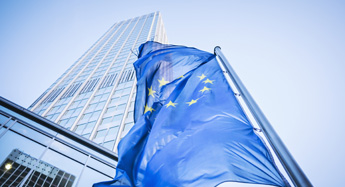Can a decision on the UPC be expected soon?
December 2018
There are rumours – just rumours at the moment – that the German Federal Constitutional Court (FCC) will give its decision on the complaint filed against the UPC within the month.
The filing of a complaint before the FCC in March 2017 resulted in the signature of the legislation necessary to ratify the UPC by the German President being stayed. This, of course, followed a lengthy delay already caused by the aftermath of the UK's Brexit decision on June 2016.
Recent ratification by the UK has left the onus on Germany to provide the final mandatory ratification that will enable the UPC and Unitary Patent to come into existence, …but for the stay due to the constitutional complaint.
Nobody is predicting how the decision of the FCC will go, although the man widely thought to have filed the complaint, Ingve Stjerna, has recently suggested that the UPC project will be 'waved through'.
Meanwhile, a leading architect of the UPC and Unitary Patent system, Kevin Mooney, has been giving evidence to the EU Justice Sub-Committee of the House of Lords into Brexit's effect on the plans for the UPC and Unitary Patent. If the UPC is upheld by the FCC, Mooney expressed the view that a deal between the UK and the EU allowing a transitional period until the end of 2020, leaves time for the UPC and the Unitary Patent to come into force with the UK a participant. The continuing participation of the UK beyond the transitional period can then be negotiated.
If there is no deal then the prospect of the UK's participation becomes more difficult, even though the Government recently stated that it 'will explore whether it would be possible to remain within the Unified Patent Court and unitary patent systems in a 'no deal' scenario'.
CIPA president Stephen Jones, also giving evidence to the Sub-Committee, expressed the view that it would be better if the UK and other countries such as Switzerland could participate anyway, regardless of the Brexit outcome. Even with the political will to do so, however, legal opinions on this possibility differ. Most recently, a report of the Max Planck Institute insisted that the UPC must be restricted to EU member states. This was repudiated, anonymously, by an article on the EPLAW blog a short time later.
For now, if the UPC survives the FCC, it will go ahead. If that decision is made by the FCC as soon as December, or even early in 2019, then the UPC could be in force by the end of 2019. However, if this happens, Stjerna suggests, a violation of other fundamental rights remains susceptible to objection. In particular, European Union law. If the FCC does not request a preliminary ruling from the CJEU in this case, Stjerna believes the compatibility of the UPCA with Union law remains open to a demand by defendants in proceedings that a preliminary ruling by the CJEU be obtained on the UPC's compatibility with Union law. In other words, the UPC and Unitary Patent could be challenged after it has already started running
Would a subsequent challenge in the CJEU be successful, or even permitted, in circumstances where the FCC has already ruled it unnecessary…? One step at a time – let's first see what the FCC says in the existing challenge. Very soon, perhaps.
If you have any questions on this article or would like to propose a subject to be addressed by Synapse please contact us.


Paul England
Paul is a senior professional support lawyer in our London office specialising in patents law.
"The view was expressed that it would be better if the UK and other countries such as Switzerland could participate..."

